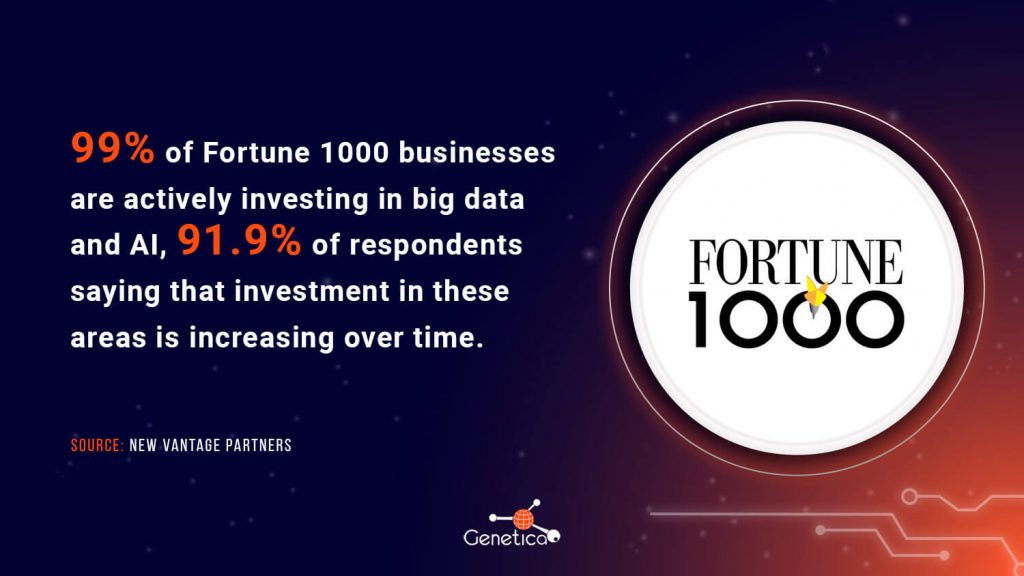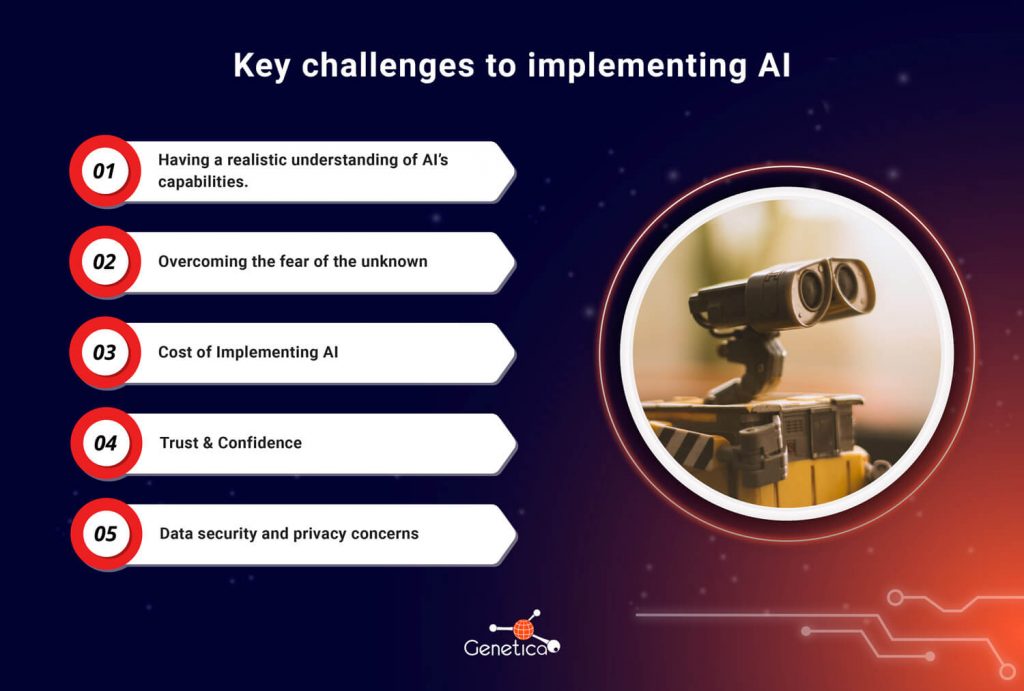
It would be fair to say that any forward-thinking business understands that investment in Big Data and Artificial Intelligence (AI) is critical in future-proofing their operations. New Vantage Partners, one of the pioneers in Data-Driven Business Leadership, found that 99% of these businesses report actively investing in big data and AI, with 91.9% of respondents saying that investment in these areas is increasing over time.
However, when businesses decide to invest and implement AI, they soon identify critical challenges. For many business stakeholders, especially those without a solid technical background, it can be difficult to appreciate AI capabilities and limitations fully, what’s involved in developing this capability, and where best to augment it in their current decision-making processes.
These challenges include:

Having a realistic understanding of AI’s capabilities
“With AI, I’m going to solve world hunger, cure cancer and increase profits tenfold.”
Think again!
Despite the potential benefits of artificial intelligence (AI), many businesses are struggling to understand its practical application. In the most common scenarios:
- Business stakeholders struggle to understand what AI is and how to leverage this technology within their operations effectively.
- There is a lack of clear direction on how best to augment AI in operational decision-making.
- AI practitioners love talking jargon. However, if your AI team can’t explain AI in business terms, they have little chance of solving business problems.
Overcoming the fear of the unknown
One of the key challenges to implementing AI is what experts call the “fear of the unknown.” there will always be resistance to change. When it comes to AI, this fear is compounded by the fact that few individuals have a firm grasp of what artificial intelligence is and how it works. Business stakeholders need to appreciate that change is necessary for companies to succeed and grow; However, without an effective change management program, these transitions can be rocky and expensive in terms of time and resources. With change management comes transparency; without this transparency, businesses experience low employee morale and a general lack of adoption.
Cost of Implementing AI
Implementing AI can be costly due to the high dependency on multiple expensive and scarce technical subject matter experts. AI projects have six basic steps, each requiring different skill sets.
Firstly, you need to gather the relevant data required for modeling. This data will reside in internal systems as well as from external providers and will be in multiple formats – structured and Unstructured. From a resource perspective, this requires data analysts to identify the necessary data and engineers to acquire it. Once the data has been identified and acquired, it needs to be analyzed to ensure its appropriateness for modeling and that it contains no bias; this traditionally requires specialist data analytic skills. The next step requires selecting the appropriate modeling approach and then training and testing the model. Here you will need multiple data scientists and data analysts. Then once you are happy with the model’s performance and accuracy, the model needs to be deployed; here, this phase requires data engineers and programmers.
Trust & Confidence
Unless business stakeholders have confidence in AI, its adoption will be minimal. AI projects pose a unique challenge regarding trust and confidence since AI traditionally has operated in a ‘black-box’ environment using pattern recognition against massive amounts of data. Unlike other technologies that simply automate tasks, AI effectively performs tasks its stakeholders can’t. Moreover, AI can learn and alter its programming in ways most stakeholders can’t. AI outcomes need not only to demonstrate accuracy and reliability they also to be transparent.
Data security and privacy concerns
AI needs to leverage very large datasets for both training and testing purposes. The sheer volume of this data, the ability to re-identify what was previously de-identified data, and the challenge of navigating through the regulatory landscape make AI implementation challenges. Typically, AI projects leverage data relating to individuals, whether consumers or patients. Understandably, these individuals are wary about automated technologies that obtain and use their data, which may include sensitive information. Therefore, these projects must ensure they comply with privacy legislation, which includes demonstrating that individual consent has been freely given.
How Genetica is helping businesses to avoid these common pitfalls

Genetica’s Cortex Cognitive AI Platform is a cloud-based end-to-end AI development & lifecycle management solution. Our intuitive UI & zero programming environment is ideal for developing, deploying, and maintaining industrial-strength AI applications.
Once a model is deployed, Genetica not only manages ‘what‘ needs to be done, it also recommends ‘how‘ and by ‘whom’ autonomously.
Let Genetica help you take your business to the next level with AI.

